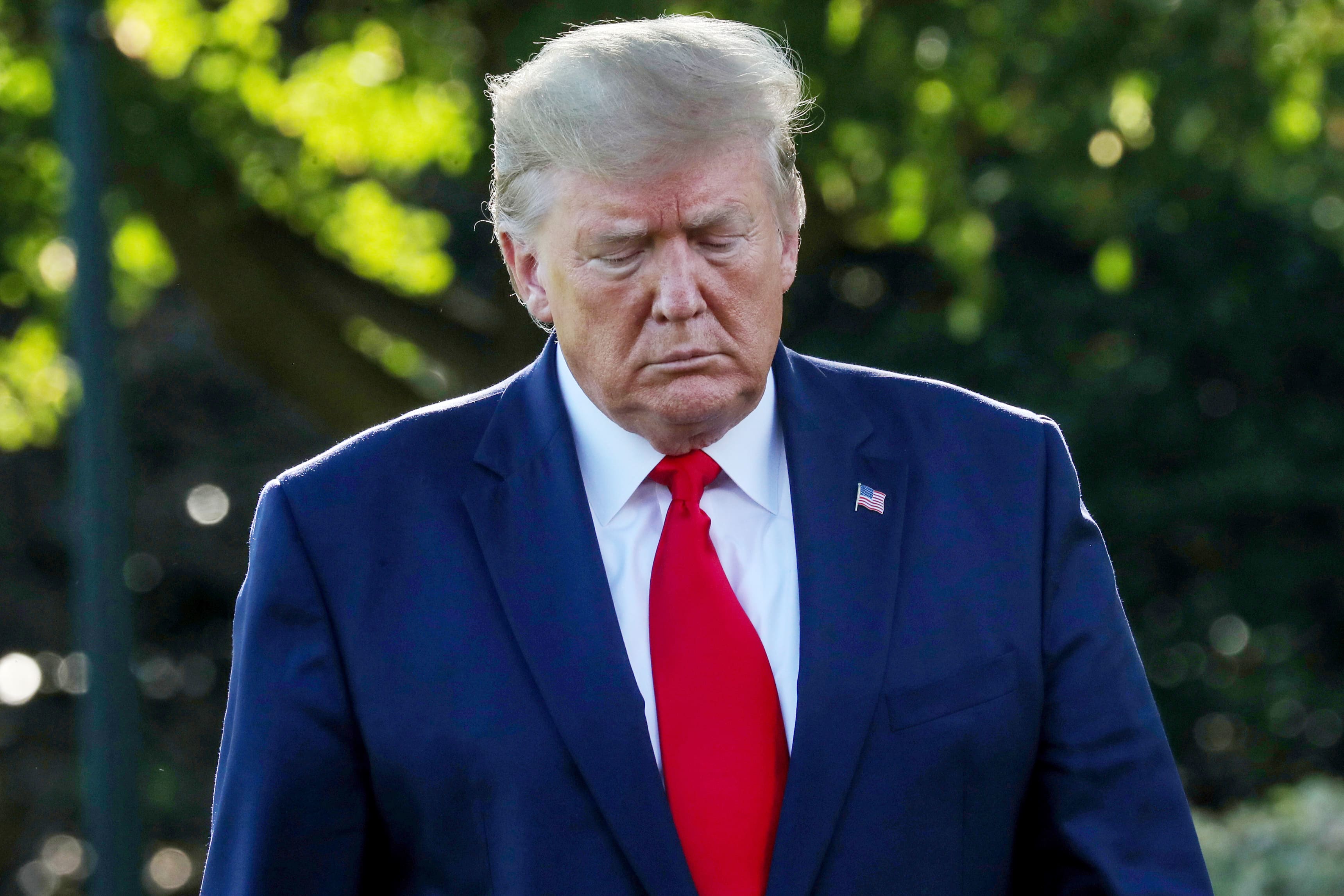
President Donald Trump speaks to reporters as he departs for travel to Minnesota from the South Lawn of the White House in Washington, U.S. October 10, 2019.
Jonathan Ernst | Reuters
Former President Donald Trump’s tax records have been turned over to Manhattan District Cyrus Vance, Jr. following the Supreme Court’s rejection on Monday of the ex-president’s last-ditch effort to keep the documents shielded.
A spokesperson for Vance, Danny Frost, confirmed that a subpoena for the documents was enforced on Monday against Trump’s longtime accounting firm, Mazars USA, just hours after the nation’s highest court rejected Trump’s appeal.
The subpoena from Vance’s office demanded Trump’s personal and corporate records dating back to 2011, including his tax returns. Trump bucked modern precedent by refusing to release his tax returns to the public even as he mounted two campaigns for the presidency.
A spokesperson for the former president did not immediately provide comment. On Monday, Trump said in a statement that Vance was pursuing a “fishing expedition” and pledged to “fight on.”
The long-running investigation from Vance’s office has been closely guarded. Early reports suggested that his office was looking into hush money payments made on Trump’s behalf to women who alleged affairs with the real estate magnate. Trump denied the affairs.
More recent court filings have indicated that Vance may be investigating Trump and his namesake company, the Trump Organization, for possible bank and insurance fraud. Trump has repeatedly rejected allegations of financial impropriety and accused investigators of having partisan motives.
The fight over Trump’s tax documents twice made it to the Supreme Court. Both times, the panel refused to stop lower court rulings siding with the Manhattan district attorney. In July, Chief Justice John Roberts wrote an opinion for a 7-2 court rejecting Trump’s sweeping argument that he was immune to state-level criminal investigations while in office.
“In our judicial system, ‘the public has a right to every man’s evidence.’ Since the earliest days of the Republic, ‘every man’ has included the President of the United States,” Roberts, a George W. Bush appointee, wrote.
After that ruling, Trump’s attorneys continued to fight the subpoena on the grounds that it was overly broad and issued in bad faith, but lower courts rejected those claims. In October, Trump’s attorneys once again asked the Supreme Court to step in, but the court wrote in a one-line order on Monday that it would not do so.
This is breaking news. Please check back for updates.




